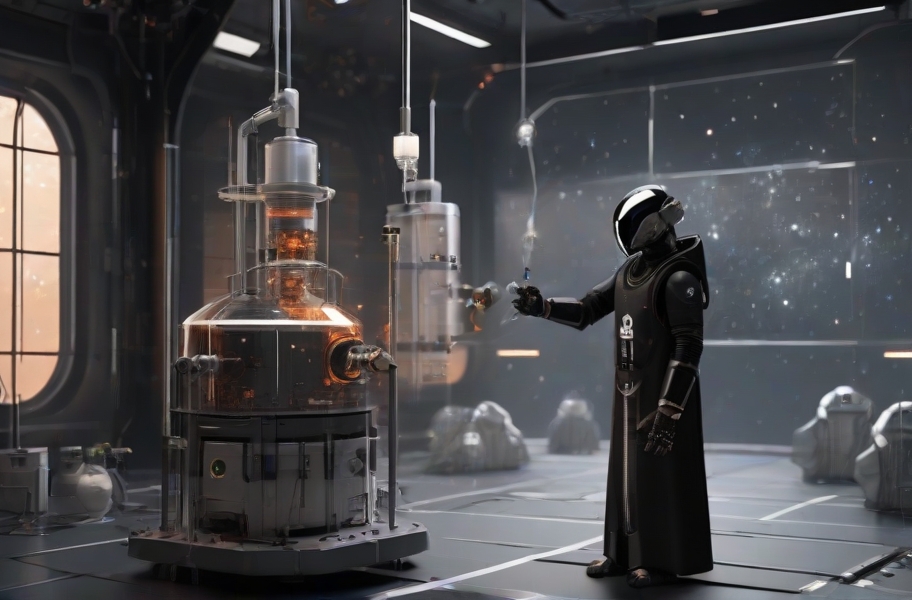
In a monumental stride towards making Mars habitable for humans, a team of Chinese scientists has unveiled an innovative robotic chemist capable of creating oxygen from Martian rocks. The breakthrough, published in the prestigious journal Nature Synthesis, marks a significant leap in advancing potential human settlements on the red planet.
Top Read: AI Integration in Influencer Marketing Revolutionizes Brand Strategies
The pioneering robot, described as an “A.I. chemist,” harnesses artificial intelligence to meticulously analyze minerals extracted from Martian meteorites. With unparalleled efficiency, the robot formulates the necessary chemical compounds to generate oxygen, undertaking complex experiments autonomously – a task that would have taken humans an estimated 2,000 years to achieve, according to researchers.
Interesting read: Revolutionizing Personal AI: Introducing Ai Pin – The Next Frontier in Wearable Technology
Lead study author Jun Jiang, from the University of Science and Technology of China in Hefei, described the robot as possessing a “chemistry brain,” emphasizing its potential to establish oxygen production facilities on Mars without human intervention. This development is crucial as it significantly reduces the need to transport essential supplies, such as oxygen, from Earth, drastically cutting down on costs and logistical challenges for future Martian colonies.
The robot’s exceptional capabilities were put to the test when it was instructed to produce oxygen solely from Martian soil. Employing high-powered lasers, the AI meticulously scrutinized the composition of Martian meteorites, sifting through a staggering 3.7 million chemical formulas to pinpoint the ideal combination of elements functioning as a catalyst for oxygen production. Remarkably, within a mere two months, the robot successfully developed a chemical catalyst capable of efficiently converting water into oxygen.

“We have developed a robotic A.I. system that has a chemistry brain,” stated Jiang, highlighting the machine’s potential to create various compounds from available resources on Mars.
While alternative methods, such as NASA’s Perseverance Rover’s successful production of oxygen from Martian carbon dioxide, exist, the focus remains on utilizing local resources to sustain life on Mars. The newly unveiled robot signifies a crucial step towards self-sufficiency, paving the way for rapid generation of vital resources directly on the Martian surface.
Read more: AI Chatbots Offer Health Tips: Promising but Risky, Experts Caution
Despite successful laboratory demonstrations, challenges lie ahead in adapting the robot’s functionality to the harsh Martian environment, where atmospheric conditions and gravity differ significantly from Earth’s. Nevertheless, the prospect of deploying this robotic chemist on Mars remains a pivotal achievement in humanity’s quest for interplanetary habitation.
The successful development of this groundbreaking robotic chemist not only brings Mars colonization within closer reach but also holds promise for lunar applications, potentially shaping the future of space exploration and human settlement beyond Earth’s bounds.

